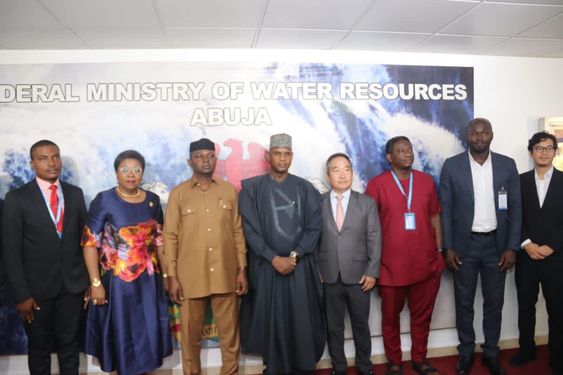Business
World Bank promises to reorient irrigation farming in Nigeria for economic growth

On Thursday in Abuja, the World Bank declared its intention to reorient Nigeria’s irrigation farming for long-term economic growth and food security.
When representatives from the Sustainable Power and Irrigation in Nigeria/Transforming Irrigation Management in Nigeria (SPIN/TRIMING) project paid a visit to Professor Joseph Utsev, the minister of water resources and sanitation, they made the pledge public.
The team lead, Mr. Jun Matsumoto, was in charge of the officials.
Matsumoto recognised that the creation of water users associations had successfully transformed the management of irrigation assets in Nigeria.
He emphasised the associations’ crucial contribution to the sustainable management of irrigation resources and urged assistance in realising the project’s goals.
He elaborated on the SPIN project’s primary goals and stressed how crucial teamwork will be to its success.
One of the goals, according to Matsumoto, was to use the infrastructure already in place for water resources to meet Nigeria’s needs for both energy and water.
According to him, the project would involve the creation of multi-purpose dam hydropower projects as well as extensive technical assistance studies concentrating on large-scale water resource management.
Prof. Utsev responded by stating that the TRIMING initiative in Nigeria has already made significant strides.
He stressed the crucial link between economic sustainability and food security and emphasised the crucial role the TRIMING initiative has played in boosting food production.
The minister praised the idea to replace the TRIMING programme, which is slated to expire in 2024, with SPIN, noting that it will tackle Nigeria’s urgent problems with food sufficiency.
Prof. Utsev underlined the Federal Government’s dedication to national improvements in irrigation methods, farming practises, and food security.
He thanked the World Bank for the project’s outstanding success over the previous nine years and expressed hope that it will produce even more noteworthy results.
For 130,000 farmers in four restored irrigation schemes, TRIMING improved the quality of and access to services that increase productivity and market access.
They are the Hadejia Valley Irrigation Scheme in Jigawa, the Bakolori Irrigation Scheme in Zamfara, the Middle Rima Irrigation Scheme in Sokoto State, and the Kano River Irrigation Scheme.
At each of the irrigation systems, the project offers technical help for the establishment of a Farmers’ Management Centre.
